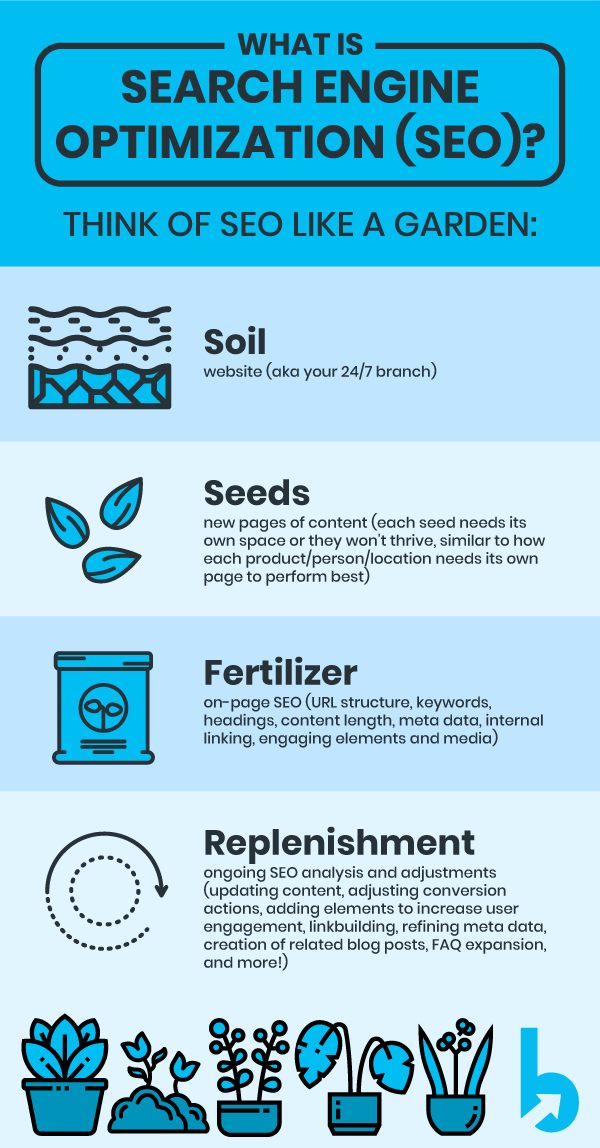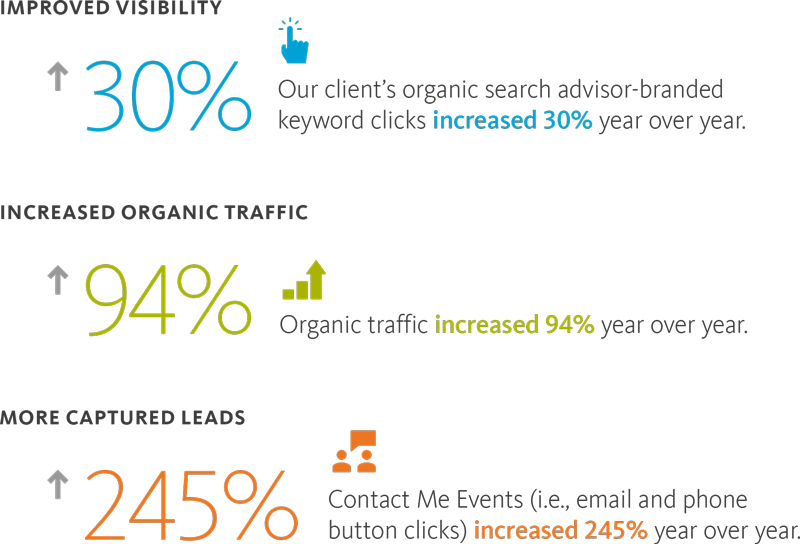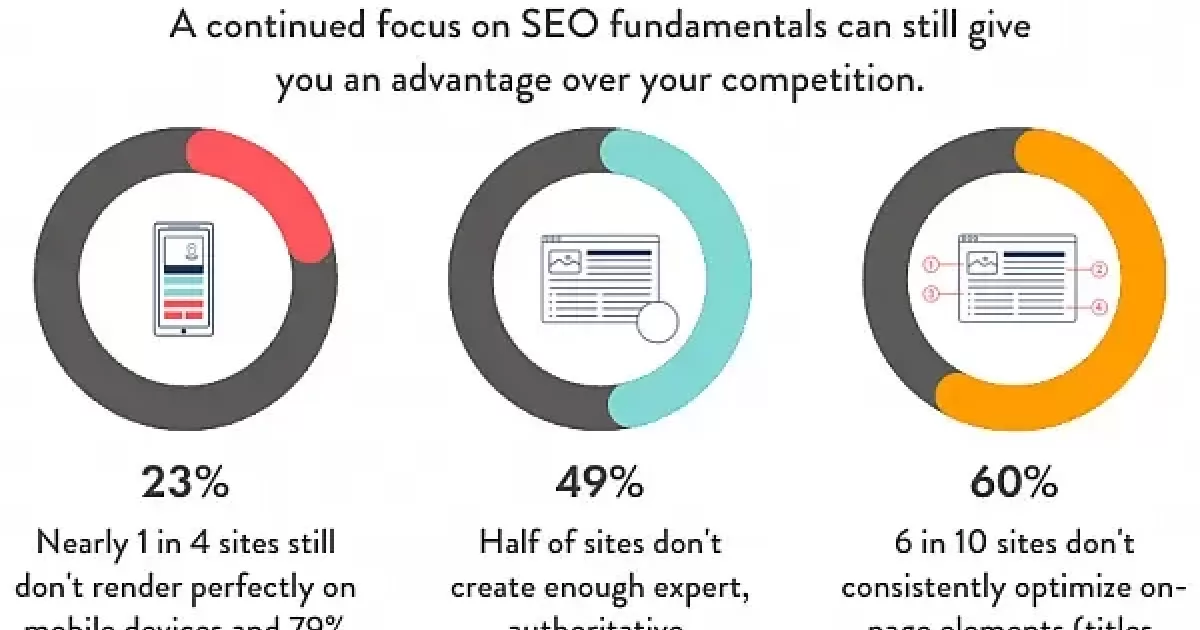Unlock the secrets of dominating search engines with innovative SEO strategies tailored specifically for financial firms. Boost your online presence now!

Image courtesy of via DALL-E 3
Table of Contents
Introduction to SEO for Financial Firms
In the digital world of today, ensuring that your financial firm’s online presence is visible and easily discoverable is crucial. This is where SEO, or Search Engine Optimization, comes into play. SEO is a powerful tool that helps websites like yours rank higher in search engine results, making it easier for potential clients to find you. In this section, we will explore what SEO is and why it is essential for financial firms to incorporate it into their marketing strategy.
What is SEO?
SEO can be thought of as a magic formula that improves your website’s chances of showing up near the top of search engine results when someone looks up a specific topic or keyword related to your services. By utilizing SEO techniques, you can optimize your website’s content, structure, and performance to make it more appealing to search engines like Google, Bing, or Yahoo, ultimately boosting your online visibility.
Why is SEO important for financial firms?
For financial firms like yours, having a solid SEO strategy is essential for attracting new clients and expanding your business reach. Think of SEO as a way to make sure that when someone searches for services like yours in their area, your firm’s website is one of the first things they see. By implementing SEO tactics, you can increase your website’s visibility, drive more traffic, and ultimately, generate more leads and conversions.
Understanding Keywords
In the world of SEO, keywords play a crucial role in helping websites like those of financial firms appear higher in search engine results. But what exactly are keywords and why are they so important? Let’s dive into the basics of keywords and how they can boost a financial firm’s online presence.
What are Keywords?
Keywords are specific words or phrases that people type into search engines like Google when they are looking for information, products, or services. For example, if someone is looking for a financial advisor in their area, they might type in keywords like “best financial advisor near me” or “financial planning services.” These keywords help search engines understand what the user is looking for and match them with relevant websites.
How to find the right keywords?
Choosing the right keywords is essential for any SEO strategy. Tools like Google Keyword Planner can help financial firms identify popular keywords related to their services. It’s important to select keywords that are relevant to the financial industry and have a decent search volume. By including these keywords naturally in your website content, you can increase the chances of your site appearing in search results when potential clients are looking for financial services.
Creating Quality Content
Quality content is like a treasure chest full of valuable information that people are excited to find. It’s not just any random words thrown together; it’s informative, engaging, and provides real value to those who read it. Think of it as a delicious meal for your brain!

Image courtesy of www.bankbound.com via Google Images
Types of content for financial firms
Financial firms can serve up a variety of content dishes to attract and satisfy their audience. Here are some popular options:
- Blogs: These are like little articles that can educate people about financial topics or keep them updated on industry news.
- Infographics: These visually appealing images combine text and graphics to present complex information in an easy-to-understand way.
- Videos: Videos are like mini-movies that can explain financial concepts, showcase products and services, or introduce the team behind the firm.
By offering a mix of these content types, financial firms can keep their audience engaged and coming back for more delicious knowledge!
On-Page SEO Techniques
Keywords are like breadcrumbs that lead people to your website. To make your financial firm’s website more visible, sprinkle relevant keywords naturally throughout your content. Start by incorporating them into your titles, headings, and body text. Just remember not to overdo it and keep your writing clear and engaging for your readers.
Optimizing Meta Tags and Descriptions
Meta tags and descriptions are like mini-ads that appear in search results. Make sure to optimize them by including your target keywords and creating compelling descriptions that entice users to click on your link. By making your meta tags and descriptions stand out, you can improve your chances of attracting more visitors to your website.
Improving Website Speed
Have you ever visited a website that took forever to load? It can be frustrating, right? Search engines like Google also dislike slow-loading sites, so it’s essential to ensure your website loads quickly. Optimizing images, reducing server response time, and using content delivery networks are some ways to speed up your site. By providing a smooth user experience, you not only please your visitors but also boost your SEO rankings.
Off-Page SEO Techniques
When it comes to boosting your website’s visibility and ranking on search engines, off-page SEO techniques play a crucial role. These are strategies that involve activities outside your website that can help improve your SEO. Let’s explore some effective off-page SEO techniques specifically tailored for financial firms.

Image courtesy of www.broadridge.com via Google Images
Building Backlinks
One of the most powerful off-page SEO techniques is building backlinks. Backlinks are links from other websites that point to your site. Search engines like Google view backlinks as a vote of confidence in your content, which can improve your website’s authority and ranking. As a financial firm, you can seek backlinks from relevant and reputable websites in the finance and business sectors. This can be achieved through guest posting, partnerships, or networking with industry influencers.
Social Media Engagement
Active engagement on social media platforms can significantly boost your off-page SEO efforts. Social media signals, such as likes, shares, and comments, can signal to search engines that your content is valuable and relevant. By sharing your blog posts, infographics, and videos on social media channels like LinkedIn, Twitter, and Facebook, you can increase your content’s reach and attract more traffic to your website. Additionally, social media profiles often rank high on search engine results pages, providing another avenue for potential clients to discover your financial firm.
Local SEO Strategies
In order to attract clients in your local area, financial firms need to focus on implementing specific strategies known as local SEO. These strategies help your business show up in search results when potential clients are looking for services near them. Let’s explore some key tactics:
Creating a Google My Business Profile
One of the most important steps in local SEO is setting up a Google My Business profile. This free tool allows you to manage how your business appears on Google Search and Maps. By providing accurate information such as your address, phone number, and business hours, you make it easier for clients in your area to find and contact you.
Using Local Keywords
When optimizing your website for local search, using local keywords is crucial. These are specific words or phrases that include your location, such as “financial advisor in [your city].” By incorporating these keywords naturally into your website content, you increase the chances of appearing in search results when potential clients in your area are seeking financial services.
Measuring SEO Success
In order to gauge the effectiveness of the SEO strategies implemented by financial firms, it is crucial to measure SEO success through various metrics and tools. By tracking performance and analyzing data, businesses can identify areas for improvement and optimize their online presence for better visibility. Here are some key aspects to consider when measuring SEO success:

Image courtesy of www.workshopdigital.com via Google Images
Using Analytics Tools
One of the primary tools for measuring SEO success is Google Analytics. This powerful tool provides valuable insights into website traffic, user behavior, and conversion rates. By analyzing data from Google Analytics, financial firms can track the impact of their SEO efforts and make informed decisions about future strategies.
Understanding Key Metrics
Financial firms should pay attention to key metrics that indicate the effectiveness of their SEO campaigns. Organic traffic, which represents the number of visitors coming to the website through search engines, is a critical metric to monitor. A higher organic traffic volume signifies that the SEO strategies are driving more visitors to the site.
Additionally, monitoring the bounce rate, which is the percentage of visitors who leave the website after viewing only one page, can provide insights into user engagement. A low bounce rate indicates that visitors are finding the content valuable and engaging, leading to longer browsing sessions.
Conversion rate is another essential metric to track, as it measures the percentage of visitors who take desired actions on the website, such as signing up for newsletters or making a purchase. Improving the conversion rate through effective SEO strategies can ultimately drive business growth and increase revenue.
Common SEO Mistakes to Avoid
In the world of search engine optimization (SEO), making mistakes can hurt your website’s performance and visibility. Here are some common mistakes that financial firms should avoid:
Keyword Stuffing
Keyword stuffing is the practice of overloading your website with keywords in an attempt to manipulate search engine rankings. While keywords are important for SEO, using them excessively can make your content sound unnatural and spammy. Search engines like Google penalize websites that engage in keyword stuffing, so it’s best to use keywords in a natural and relevant way throughout your content.
Ignoring Mobile Optimization
In today’s digital age, more and more people are accessing websites on their mobile devices. If your website is not mobile-friendly, it can have a negative impact on your SEO performance. Search engines prioritize mobile-responsive websites in their rankings, so it’s essential to ensure that your website works well on all devices. Ignoring mobile optimization can lead to a poor user experience, high bounce rates, and ultimately, lower search engine rankings.
Conclusion
In conclusion, implementing effective SEO strategies is crucial for financial firms looking to expand their online presence and attract more clients. By optimizing their websites with the right keywords, creating quality content, and utilizing on-page and off-page SEO techniques, financial firms can improve their visibility in search engine results and ultimately grow their business.

Image courtesy of firstpagesage.com via Google Images
It is essential for financial firms to pay attention to local SEO strategies as well, such as creating a Google My Business profile and using local keywords to target nearby clients. By measuring SEO success through analytics tools and understanding key metrics like organic traffic and conversion rates, financial firms can track their performance and make necessary improvements.
Avoiding common SEO mistakes like keyword stuffing and neglecting mobile optimization is also critical to maintaining a strong online presence. By following the guidelines and best practices outlined in this article, financial firms can enhance their SEO efforts and stay ahead of the competition in the digital landscape.
Want to turn these SEO insights into real results? Seorocket is an all-in-one AI SEO solution that uses the power of AI to analyze your competition and craft high-ranking content.
Seorocket offers a suite of powerful tools, including a Keyword Researcher to find the most profitable keywords, an AI Writer to generate unique and Google-friendly content, and an Automatic Publisher to schedule and publish your content directly to your website. Plus, you’ll get real-time performance tracking so you can see exactly what’s working and make adjustments as needed.
Stop just reading about SEO – take action with Seorocket and skyrocket your search rankings today. Sign up for a free trial and see the difference Seorocket can make for your website!
Frequently Asked Questions (FAQs)
How long does it take to see SEO results?
SEO results can take some time to show up, typically a few months. Search engines need to crawl and index your website after implementing SEO strategies before you see improvements in your search engine rankings. Patience is key when it comes to SEO, but the results are definitely worth the effort in the long run.
Can I do SEO myself?
Yes, you can definitely learn and implement SEO strategies on your own. There are plenty of resources available online to guide you through the process. However, SEO can be complex and time-consuming, so it may be worth considering hiring professionals who specialize in SEO for financial firms. They have the expertise and experience to help you achieve better results and save you time and effort in the long term.







